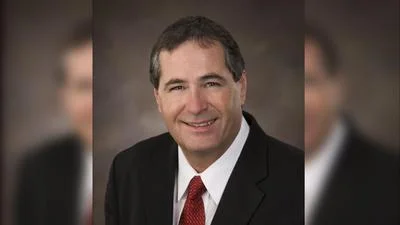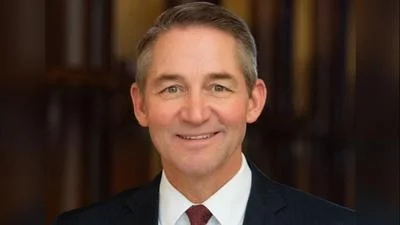WASHINGTON— U.S. Senator Kevin Cramer (R-ND) at a Banking Committee hearing questioned U.S. Department of the Treasury Assistant Secretary for Investment Security Paul Rosen on advancing our nation’s national and economic security. He also discussed the importance of protecting agricultural industry and farmland from investment by foreign adversaries.
The Senator began his line of questioning by addressing the Fufeng Group’s purchase of acreage within 12 miles of Grand Forks Air Force Base, a key Intelligence, Surveillance, and Reconnaissance (ISR) facility and home to a Space Development Agency ground control system, as well as the need to close loopholes to protect our food supply chain.
“You also mentioned sensitive facilities in your opening statement as one of the criteria [for CFIUS review]. We were very frustrated after CFIUS took the first 60 plus and another 15 or so days to conclude they didn't have jurisdiction. It was very frustrating to watch that play out. Would it have helped to expand CFIUS with the Secretary of Agriculture as a standing member, so that food supply chain is a higher priority?” asked Senator Cramer.
“Given the importance of food security, we've set up a process where USDA has full visibility into the case filings; they have visibility into the materials; they’re regularly involved in our CFIUS meetings, and they have an opportunity to not just participate but lead—just like a permanent member would— cases that present specific food security or agricultural issues,” replied Mr. Rosen. “The process that we have set up ensures, from my perspective, we do not leave any food security or agricultural issues, as it relates to national security, unresolved.”
In light of CFIUS announcing its proposal to expand jurisdiction over eight U.S. military bases, Senator Cramer asked Mr. Rosen about the potential to broaden the scope of jurisdiction to all military bases.
“If we start designating certain bases as more sensitive than other bases, we might be signaling to the enemy where our priorities are. Wouldn't it make sense to just apply that more broadly to all our military and defense installations?” asked Senator Cramer.
“We did start the regulatory process for adding those eight bases, adding 300,000 square miles of additional real estate coverage. The way Congress set up our authorizing statute at FIRRMA, it’s very intentional not to blanket the United States’ real estate jurisdiction. We give great deference to our partners at the Department of Defense and elsewhere to designate for us what is a proximity risk,” replied Mr. Rosen.
“When it comes to land itself, whether it's agricultural or otherwise, it's not like we're going to grow more. It's such a precious commodity, maybe we consider more restrictions, more blanket restrictions,” concluded Senator Cramer.
Background:
In April, Senator Cramer penned an op-ed in the Washington Examiner on American land acquisitions by entities with ties to foreign adversaries.
The U.S. Air Force, in a January 2023 letter, officially asserted the Fufeng project “presents a significant threat to national security with both near- and long-term risks of significant impacts to our operations in the area.”
Original source can be found here.





 Alerts Sign-up
Alerts Sign-up